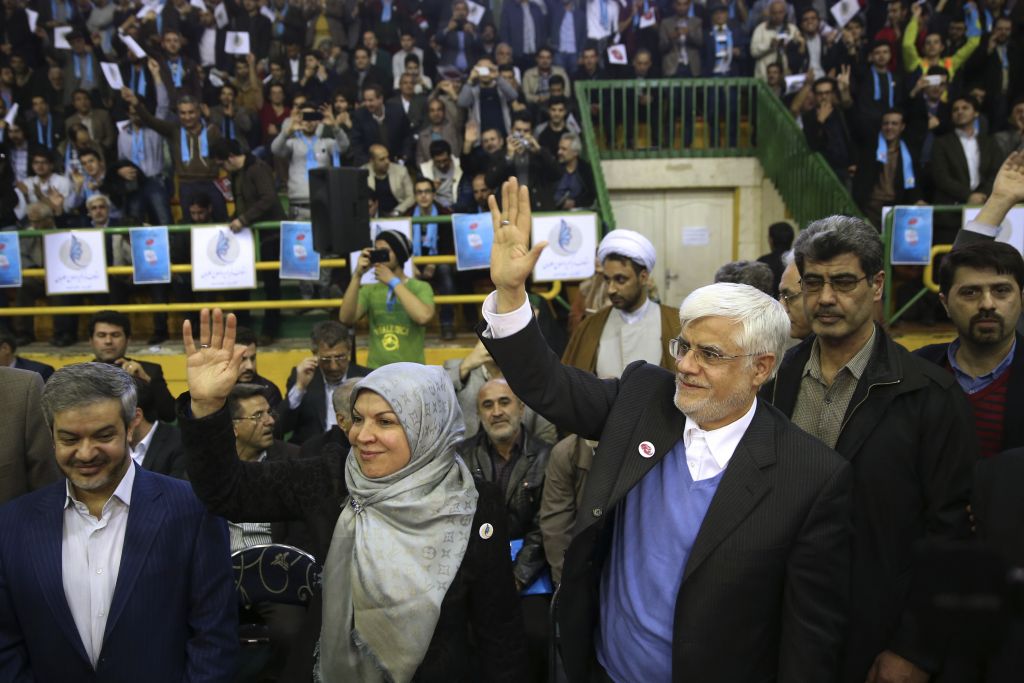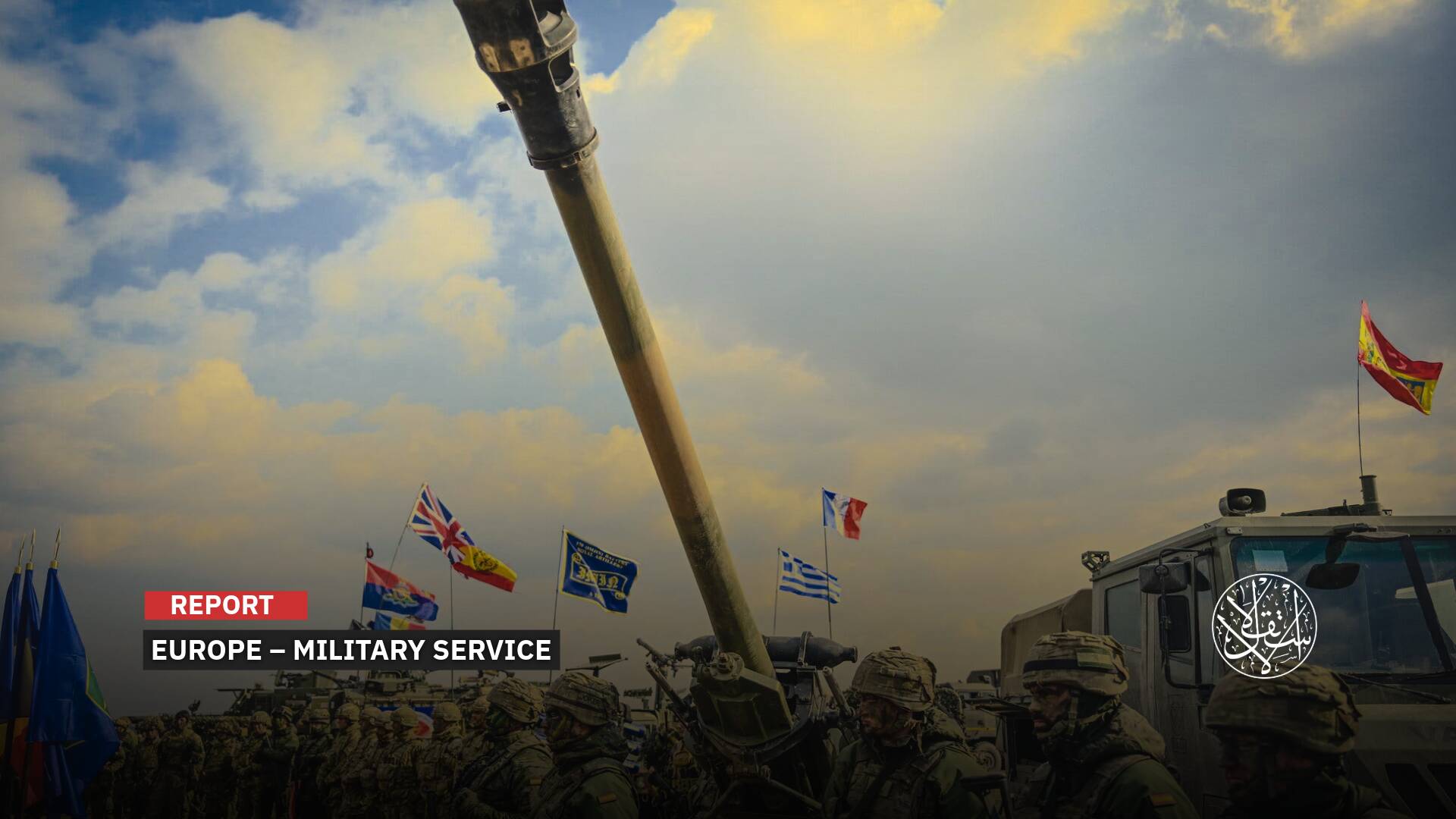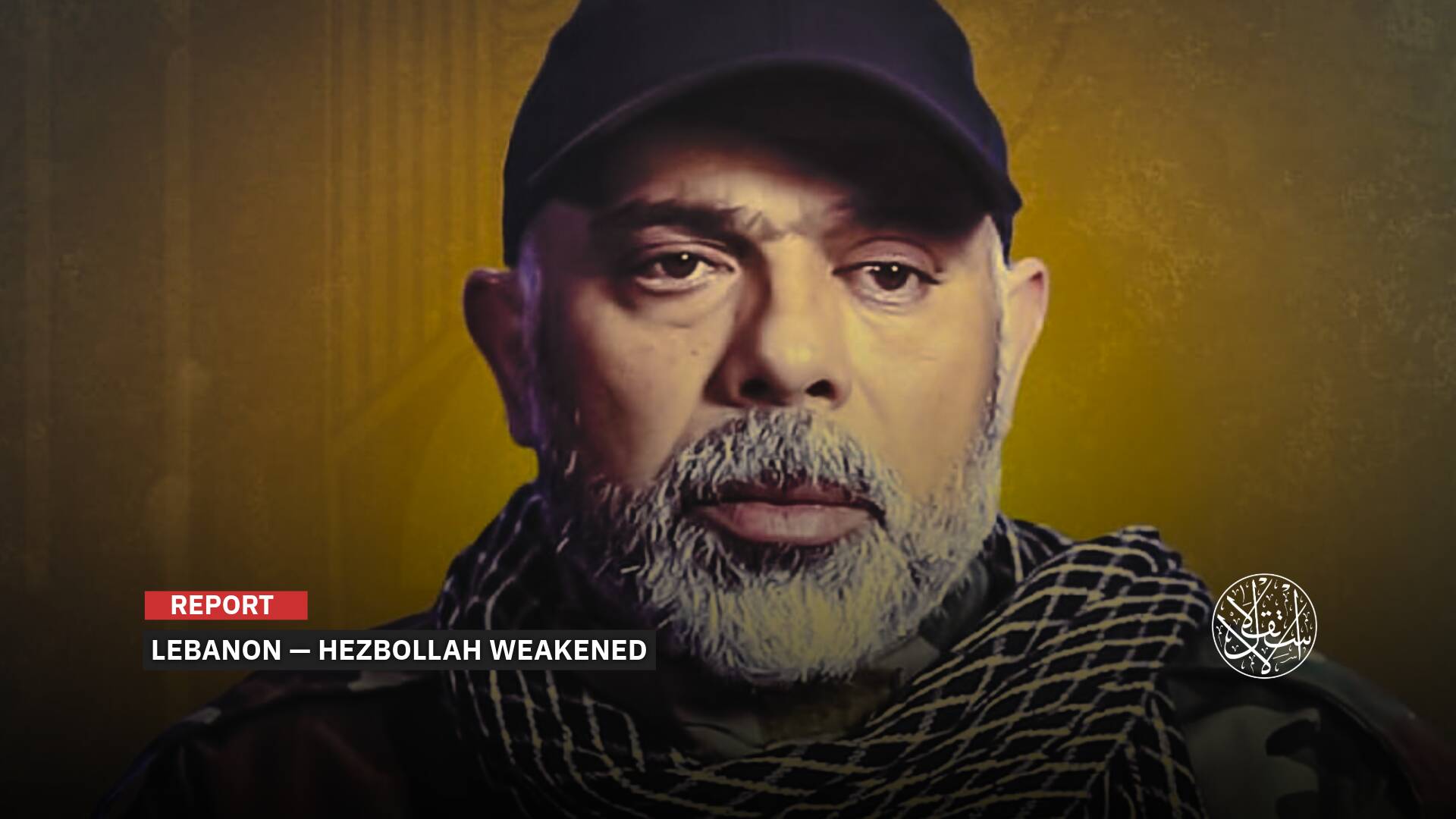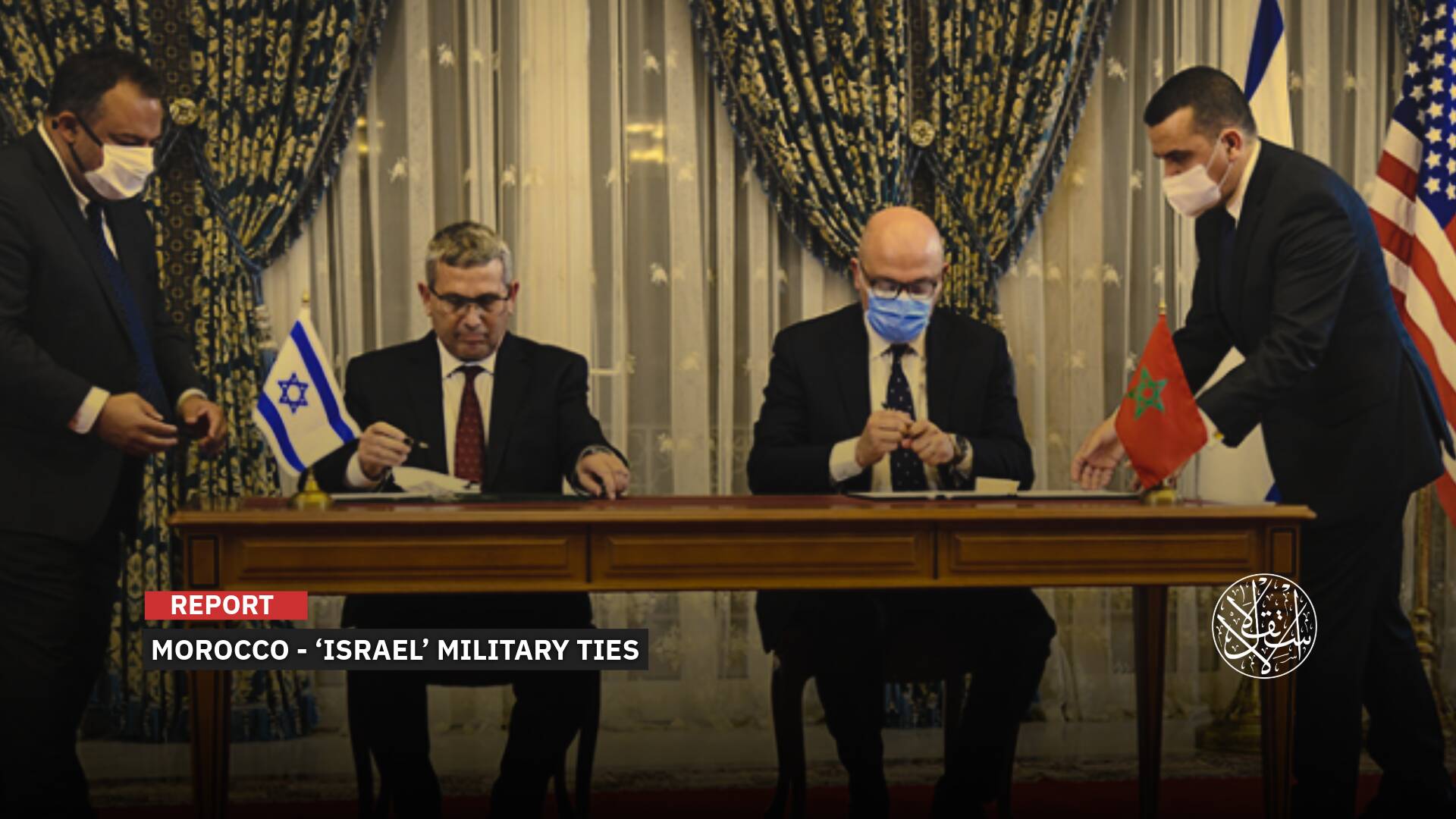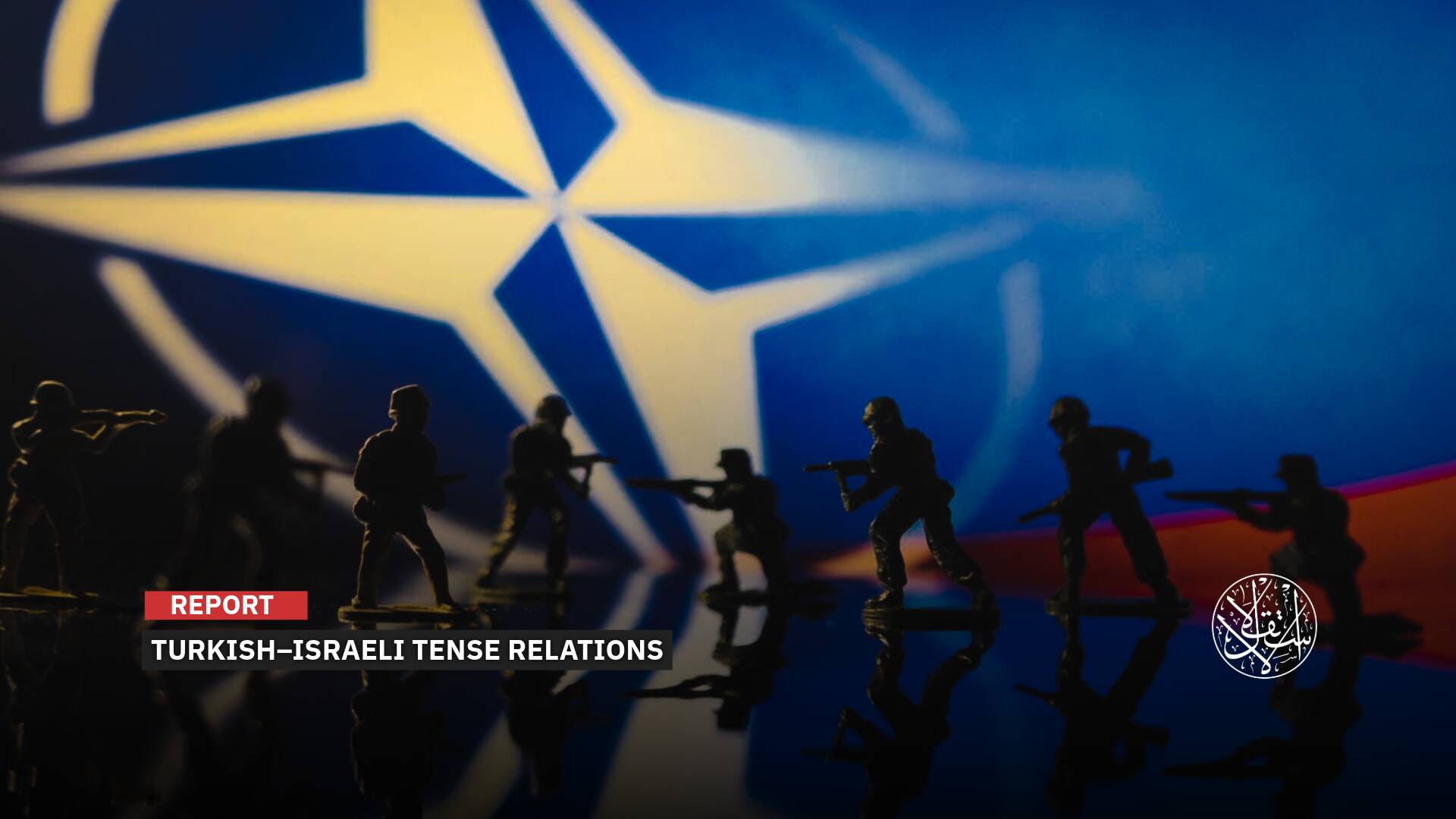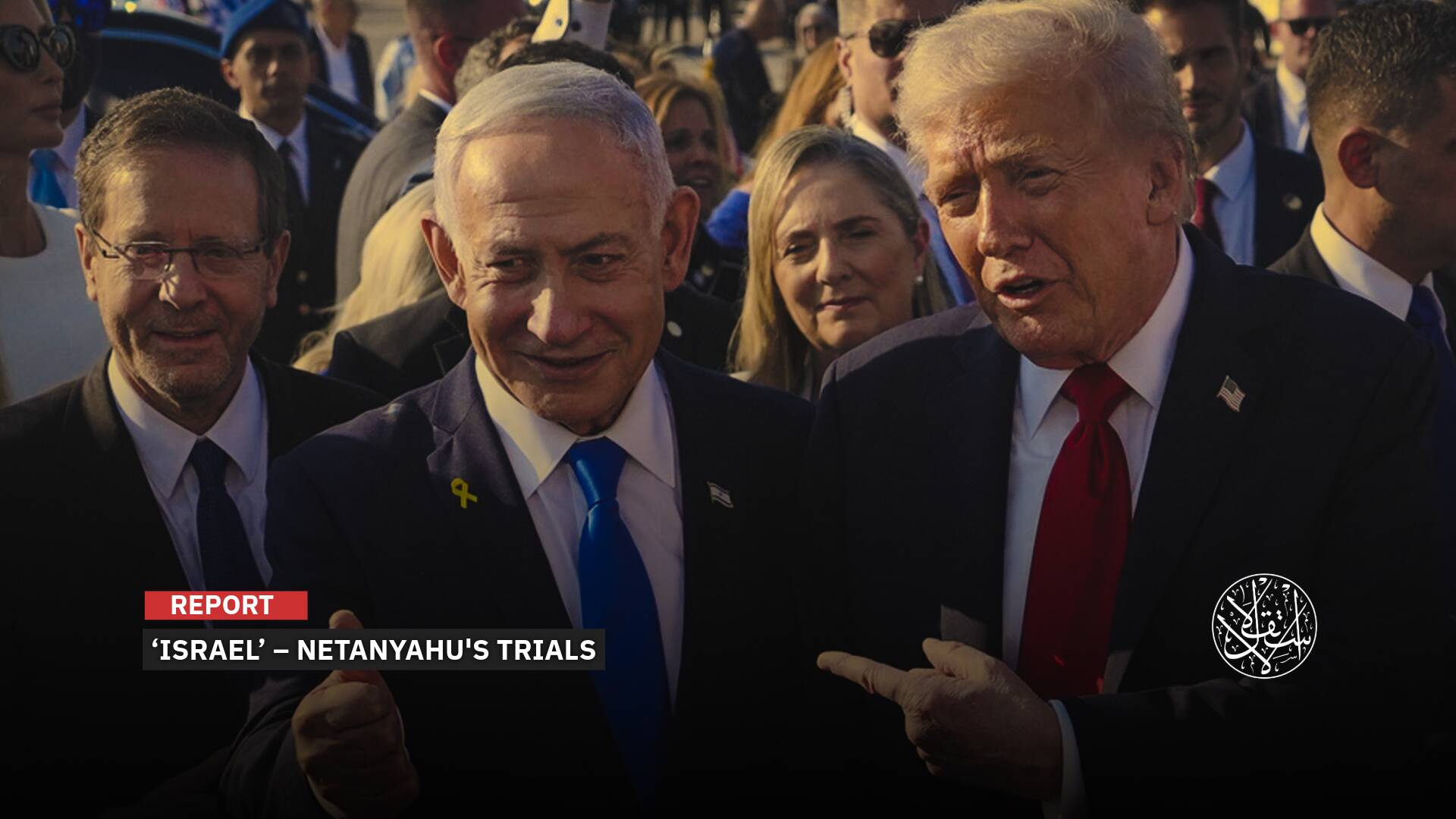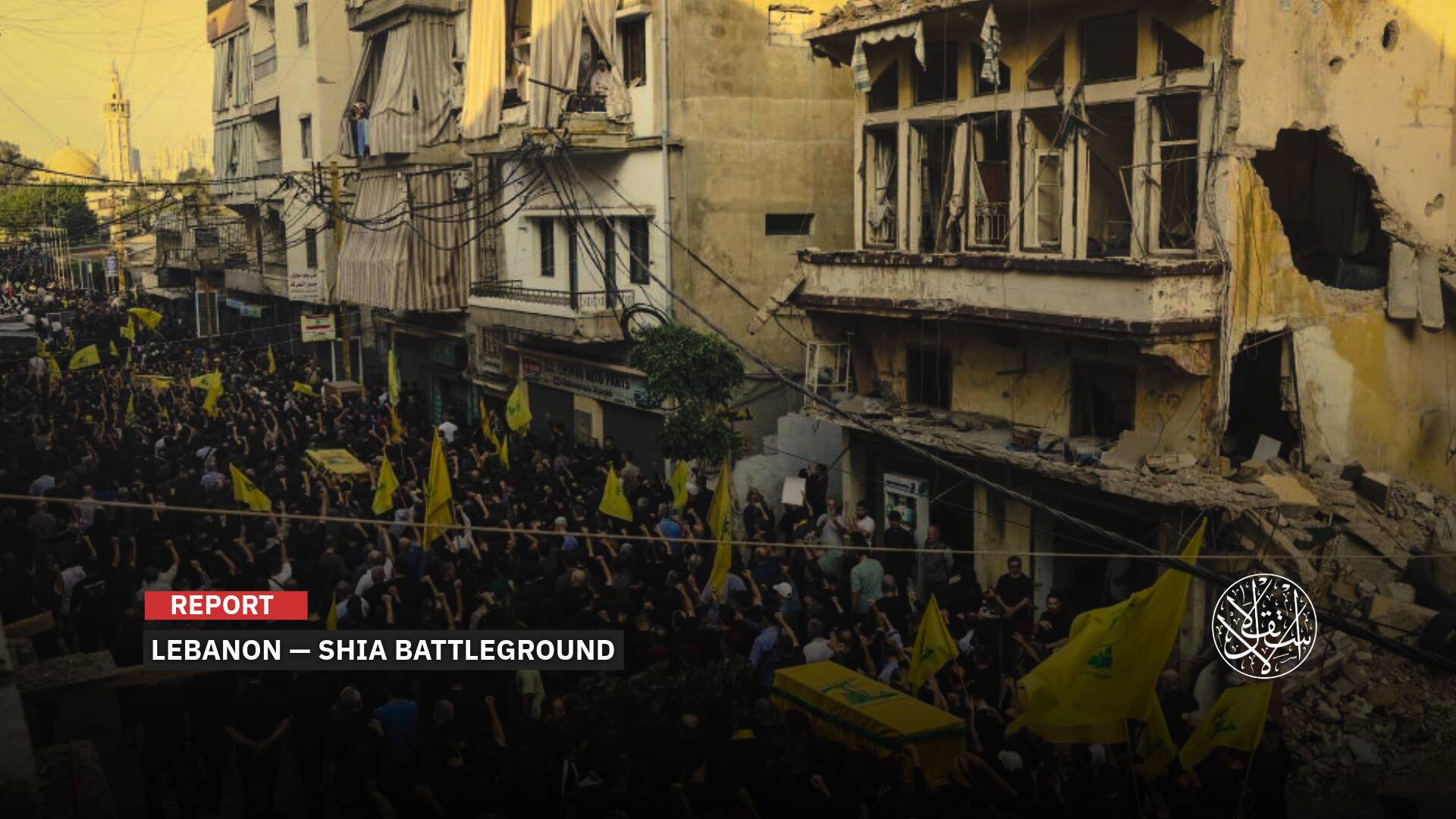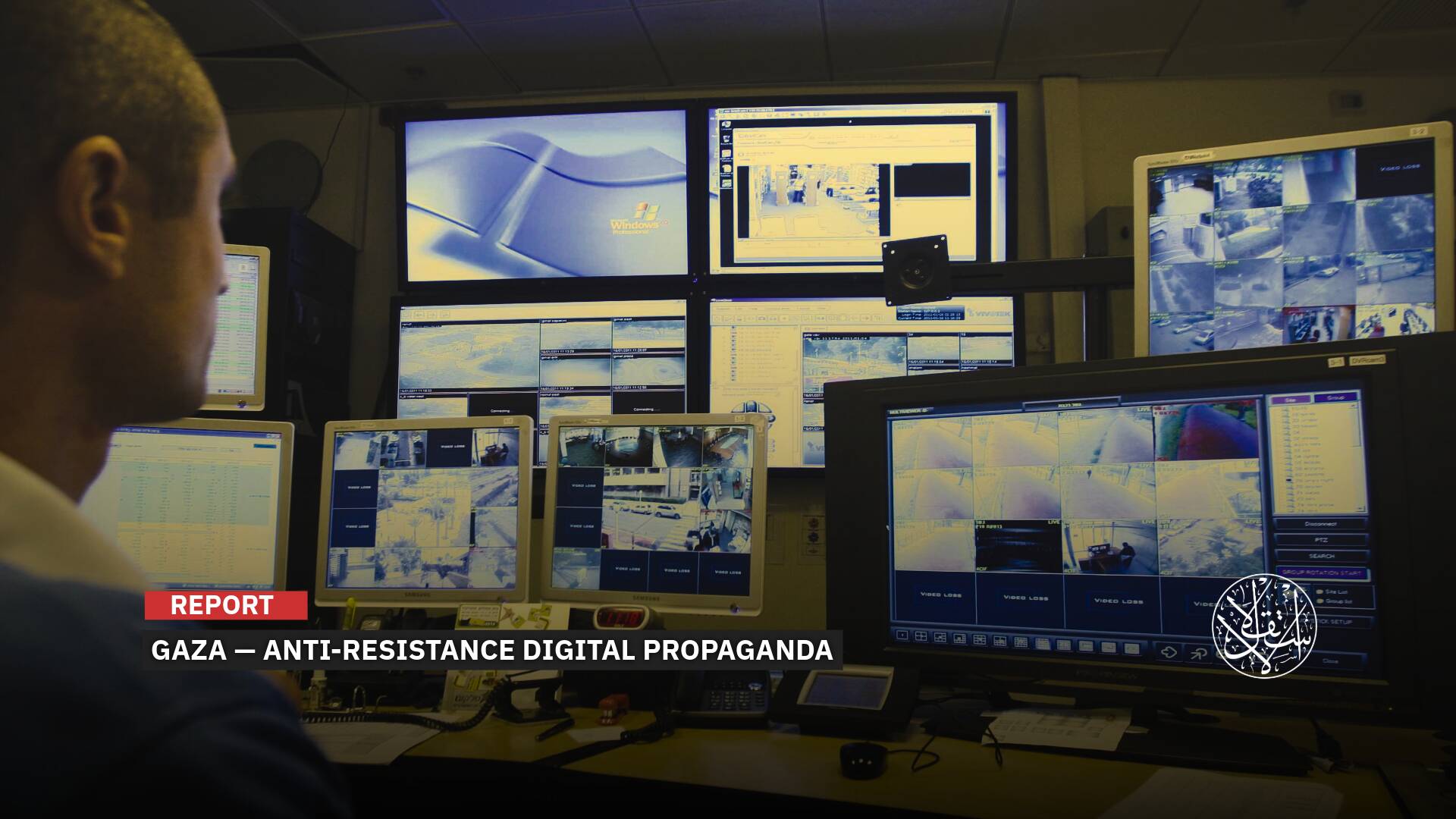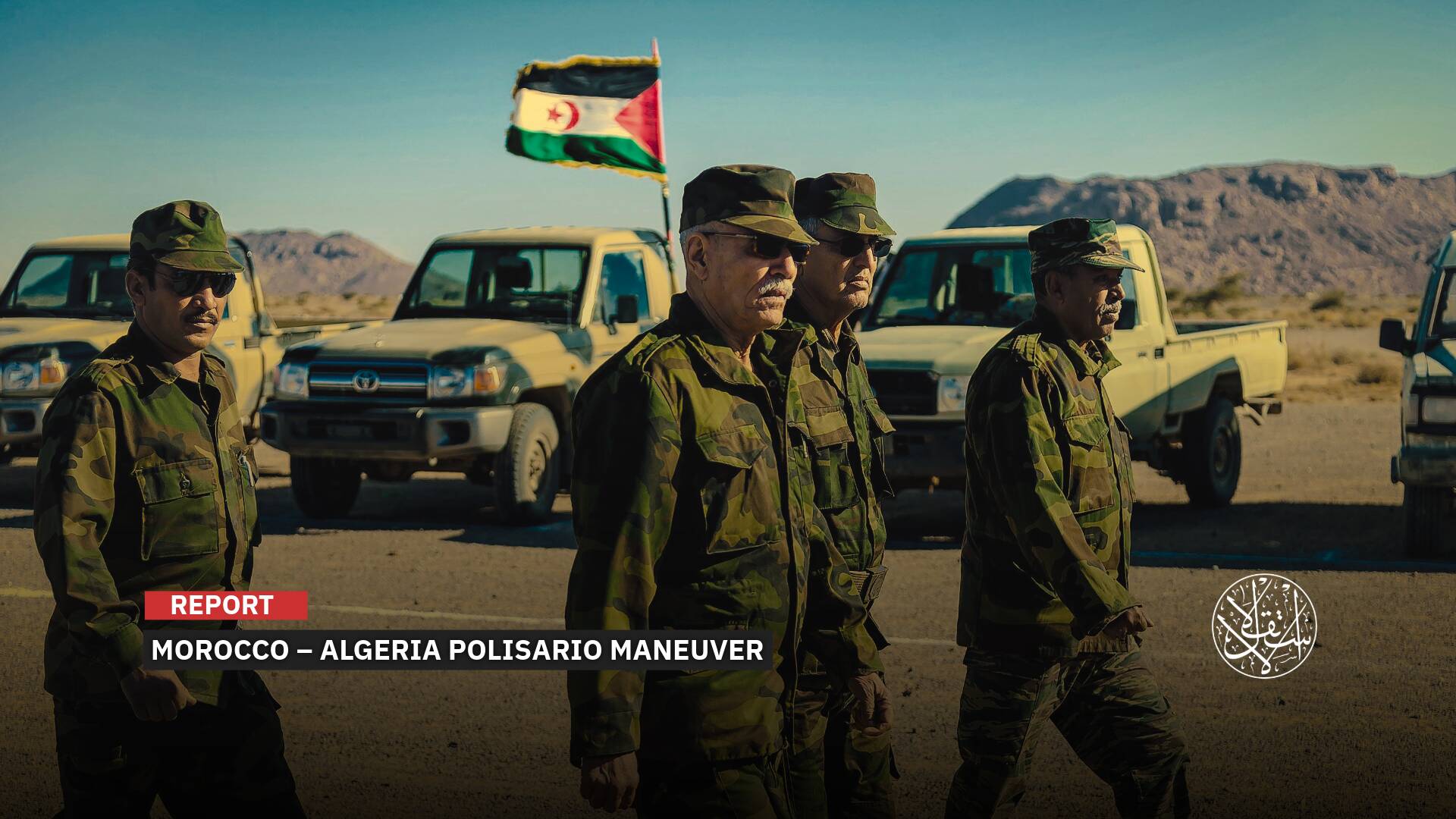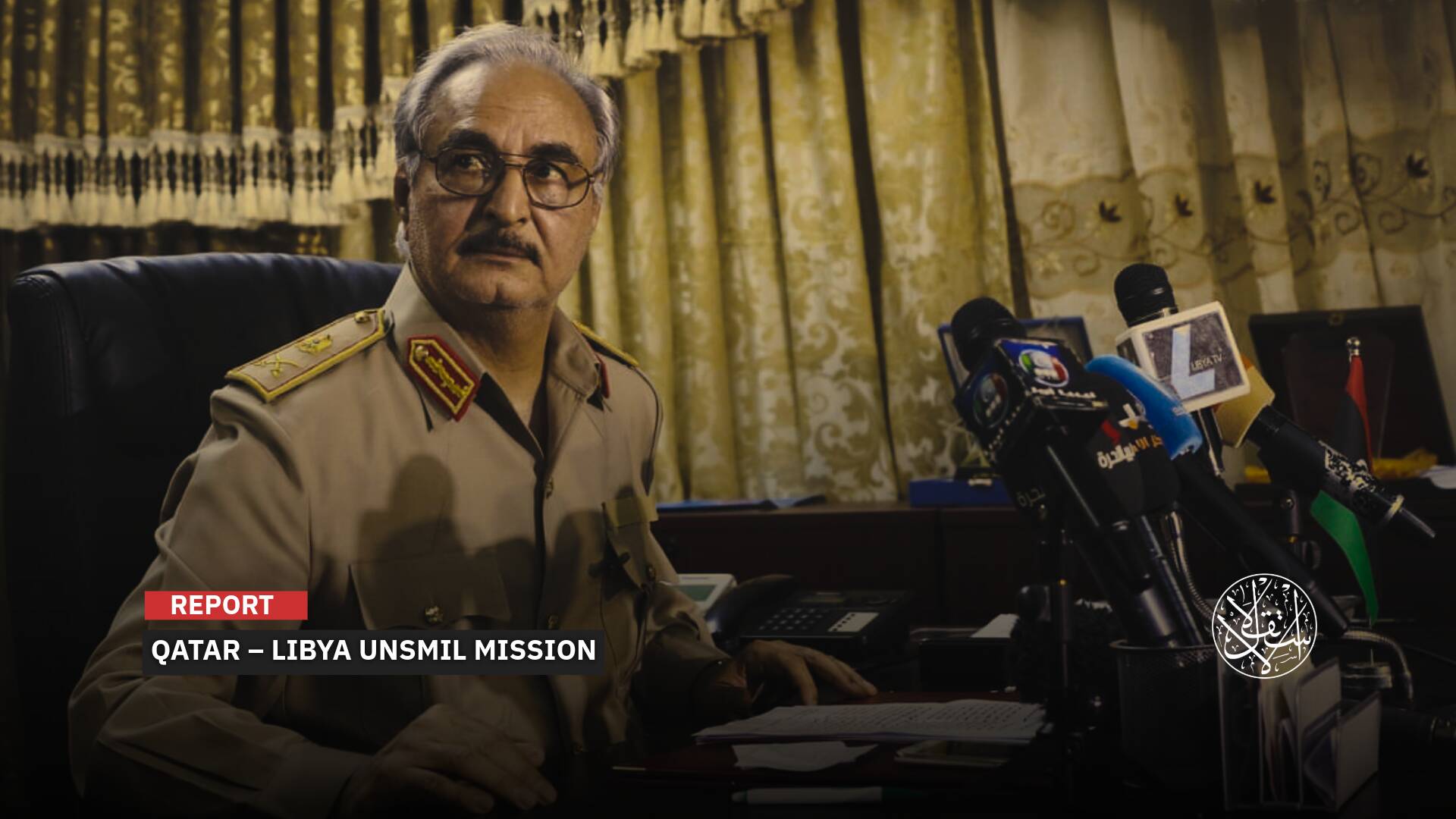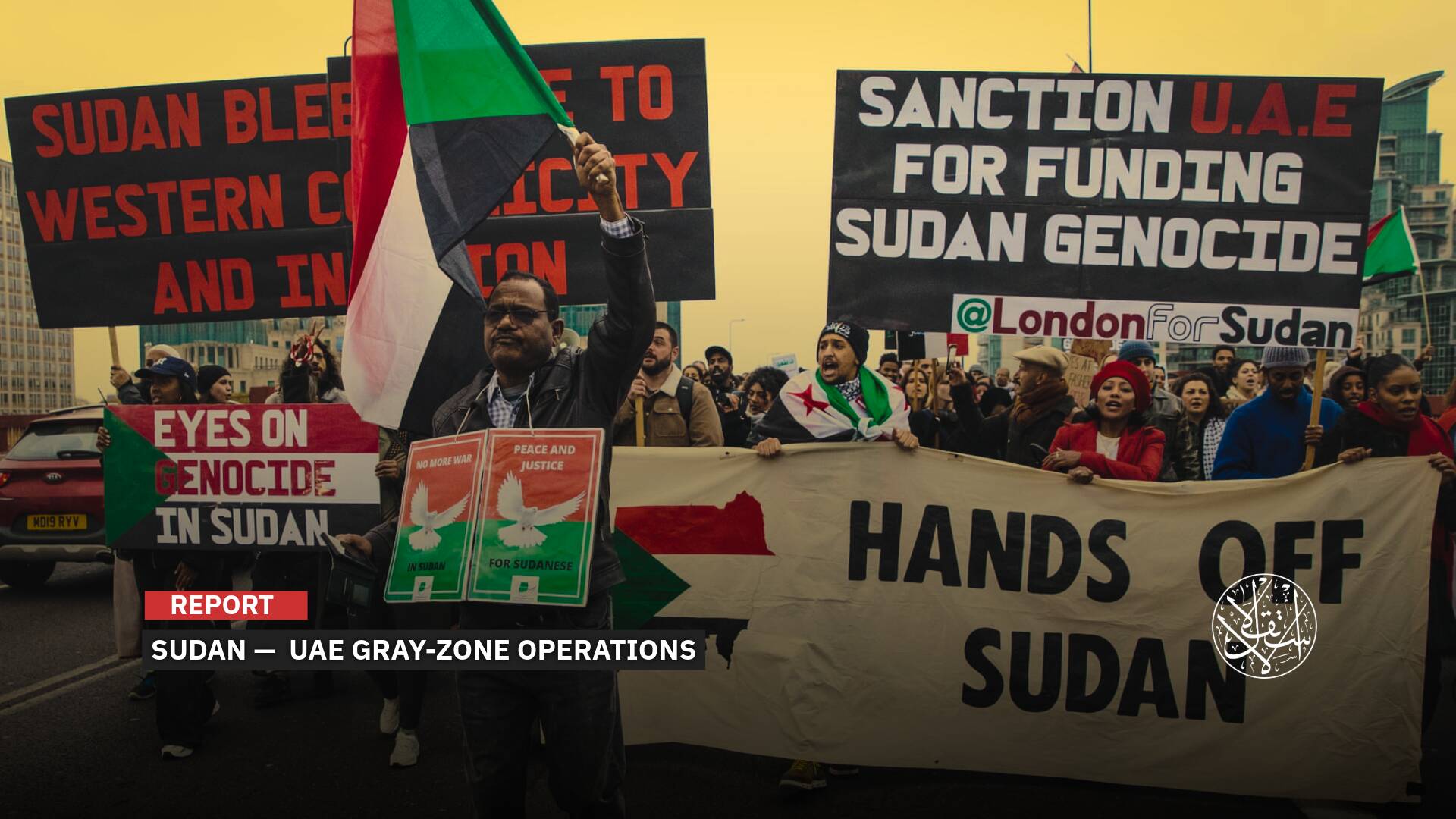Iran's Presidential Race: Will the Reformists Return or Will the Hardliners Seize Power?
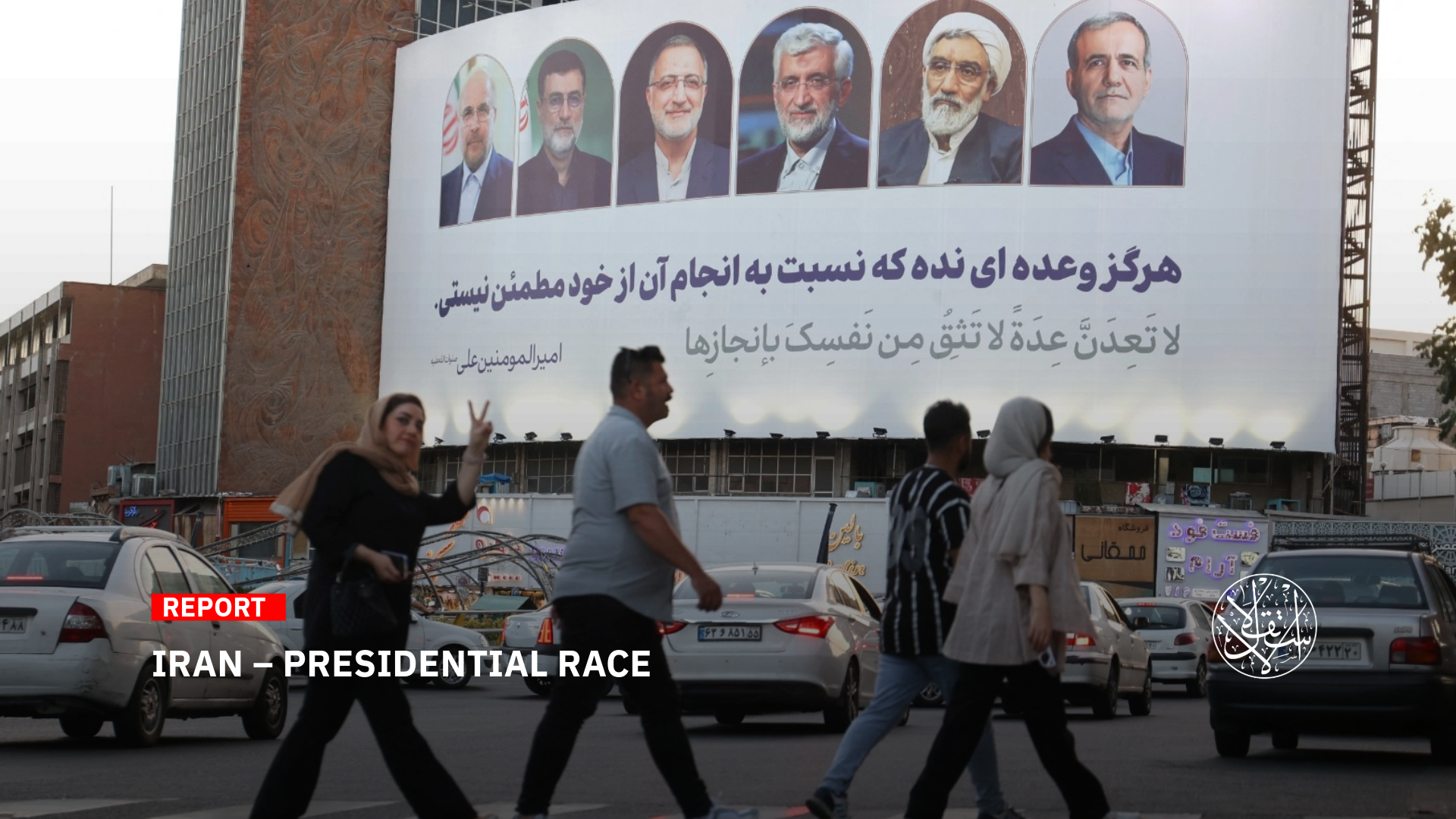
“Iran’s Guardian Council recently approved six candidates to run in the country’s June 28 snap presidential election.”
There are only days left until Iran’s snap presidential elections to choose a new president to succeed the late President Ebrahim Raisi, who was killed last May 19, as his helicopter crashed in East Azerbaijan Province, northwest of the country.
Two weeks ago, the Guardian Council named six Iranian figures out of 80 who submitted applications to run in the Iranian presidential elections scheduled to be held on June 28.
The six candidates, according to the Iranian Interior Ministry, are Speaker of the Iranian Parliament Mohammad Bagher Ghalibaf, prominent reformist parliamentarian Massoud Pezeshkian, former Secretary of the National Security Council Saeed Jalili, Mayor of Tehran Alireza Zakani, former Interior and Justice Minister Mostafa Pourmohammadi, and current vice-president and ultraconservative head of the Martyrs’ Foundation Amir-Hossein Ghazizadeh Hashemi.
Opinions have varied recently between those who expect the country's de facto leader to make room for the emergence of a more moderate president to alleviate internal tension, and those who believe that the upcoming elections will witness a strong return of prominent figures from the ultraconservative movement.
Decisive Elections
Iran is going through a delicate transition after the death of President Ebrahim Raisi, which opened the door to questions about how to manage the current period and the country's political future.
Recently, relative calm prevailed during the electoral debates between the six Iranian presidential candidates, who agreed that there are economic problems in the country, but they disagreed about the solutions available to solve them.
The U.S. sanctions imposed on Tehran also received the attention of all candidates, who promised to work to abolish or render them ineffective, while other candidates downplayed the importance of the impact of Western sanctions on the Iranian economy.
In another context, the six candidates disagreed regarding the negotiations aimed at saving the nuclear deal. One of them advocates for negotiations with Western powers under Iranian conditions, another seems unenthusiastic about the relationship with the West, and a third believes in the necessity of improving Iran’s relations with all countries globally.
The issue of the hijab also received the attention of all the candidates. Pezeshkian may have been clearer in his opposition to the compulsory hijab and the employment of guidance patrols to force women to wear it. While one candidate saw compulsory hijab as legitimate and legal, another likened it to a scourge on the family and society.
It is noteworthy that the debates have become part of the presidential race in Iran and played a decisive role in the two presidential campaigns in 2013 and 2017 in favor of former President Hassan Rouhani.
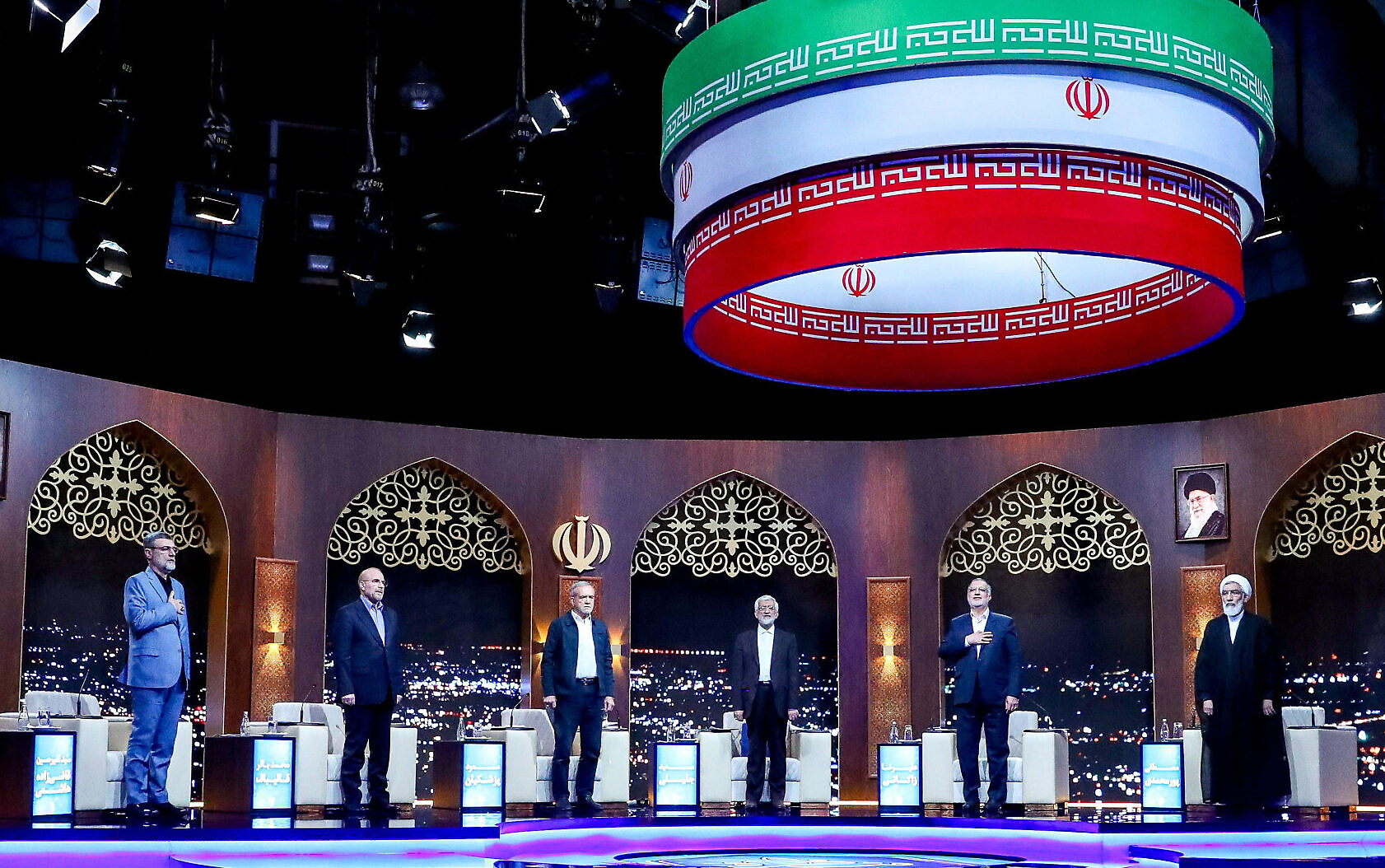
Iranians, totaling around 85 million, face extremely high inflation of up to 40%, high unemployment rates, and a record decline in the rial' against the dollar.
In turn, Iranian Leader Ali Khamenei, in mid-June, called on Iranians to participate extensively in the presidential elections, which confirms that the participation rate is more important than the identity of the next president.
A poll had previously indicated that the participation rate in the June 28 elections would not witness a significant increase in participation compared to the 2021 presidential elections, which recorded a participation rate of 48.8%.
Iranian voters are divided, according to the polls, into three categories: the first category is those who will participate in the Iranian presidential elections under any circumstances; the second category is made up of the undecided who have not yet decided; and the third category includes the boycotters.
In the absence of polls, experts consider Mohammad Bagher Ghalibaf to be one of the three most likely candidates in the elections, along with Saeed Jalili and Massoud Pezeshkian.
If he wins, Ghalibaf will be the first president during Khamenei's era to serve as a high-ranking commander in Iran’s Islamic Revolutionary Guard Corps (IRGC).
On the other hand, Jalili is considered the second most prominent ultraconservative candidate after Ghalibaf in the Iranian presidential race.
On his part, Pezeshkian faces the difficult task of reviving the reformist movement, which in recent years has lost the political influence it had enjoyed since 1979.
No reformist or moderate figure was allowed to run in the 2021 presidential elections, which were easily won by Ebrahim Raisi.
Prominent moderate and reformist figures such as former President Mohammad Khatami (1997-2005), his deputy Mohammad Reza Arif, and former Foreign Minister Mohammad Javad Zarif spearheaded the endorsement of Pezeshkian.
According to observers, in these elections, the reformists stood united behind one man and hoped to restore the era of Khatami, which at that time created a new launch in the path of the reformist movement.
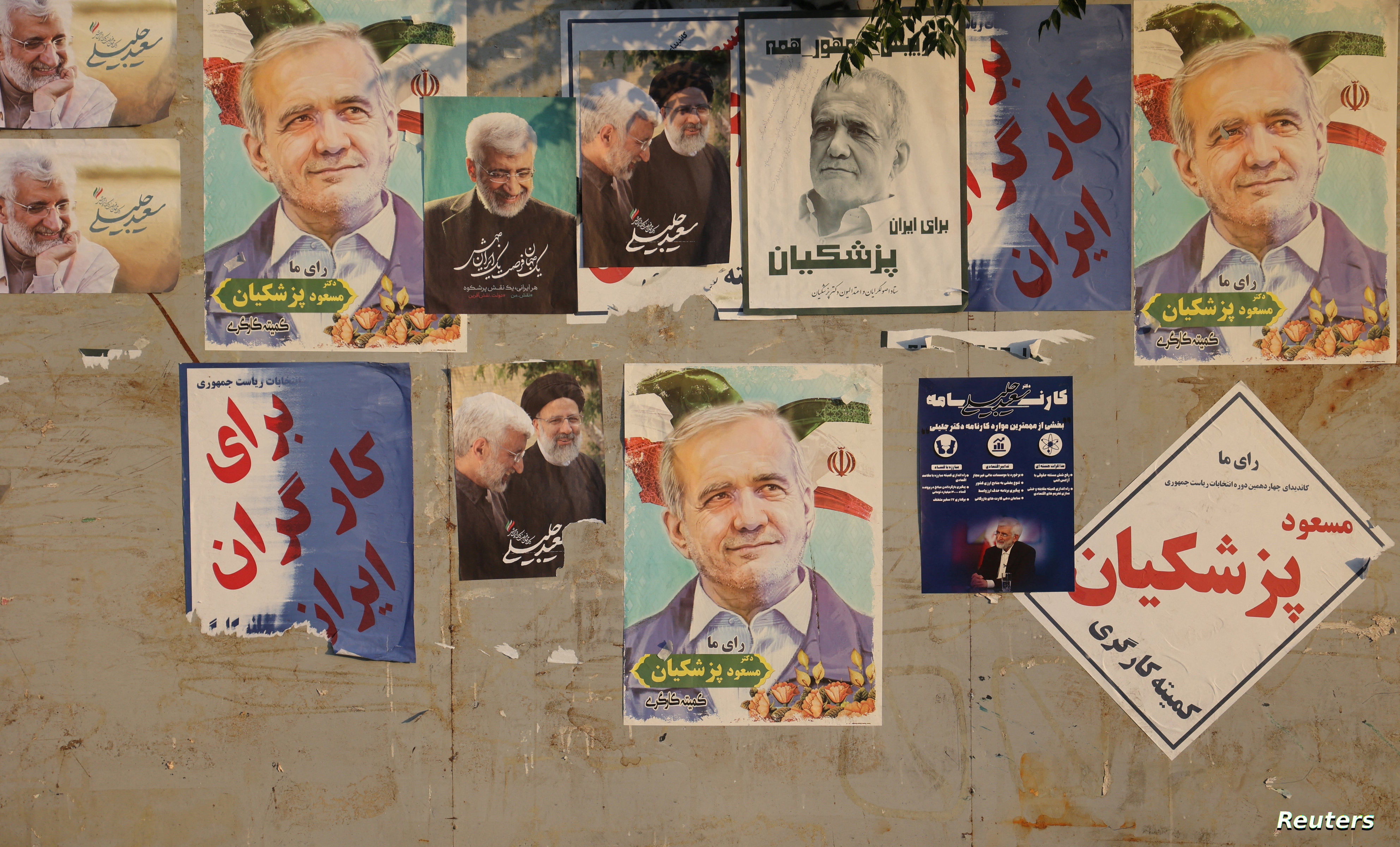
Mohammad Bagher Ghalibaf
He is a prominent conservative politician, 63 years old, and is considered the most prominent conservative candidate in these elections.
Ghalibaf, who is close to the former Quds Force commander General Qasem Soleimani, held leadership positions in the IRGC, including the command of the Air Force, before he was appointed commander of the police forces.
Many say that Ghalibaf, when a General in the IRGC, led a violent crackdown on Iranian university students in 1999, as well as ordering the shooting of students in 2003 while serving as the country's police chief.
In 2005, Ghalibaf assumed the position of mayor of Tehran, succeeding former Iranian President Mahmoud Ahmadinejad, who moved toward the presidency from the same position.
The former Speaker of the Iranian Parliament ran four times to run in the Iranian presidential elections, but he failed.
Ghalibaf won a seat from Tehran in the last parliamentary elections that took place last March, but observers and Iranian media considered him a loser after coming in fourth place on the list of winners.
The members of his list also failed to win among the thirty representatives from Tehran. However, his presidency of the Iranian Parliament, which is controlled by conservatives, was renewed by obtaining 198 votes.
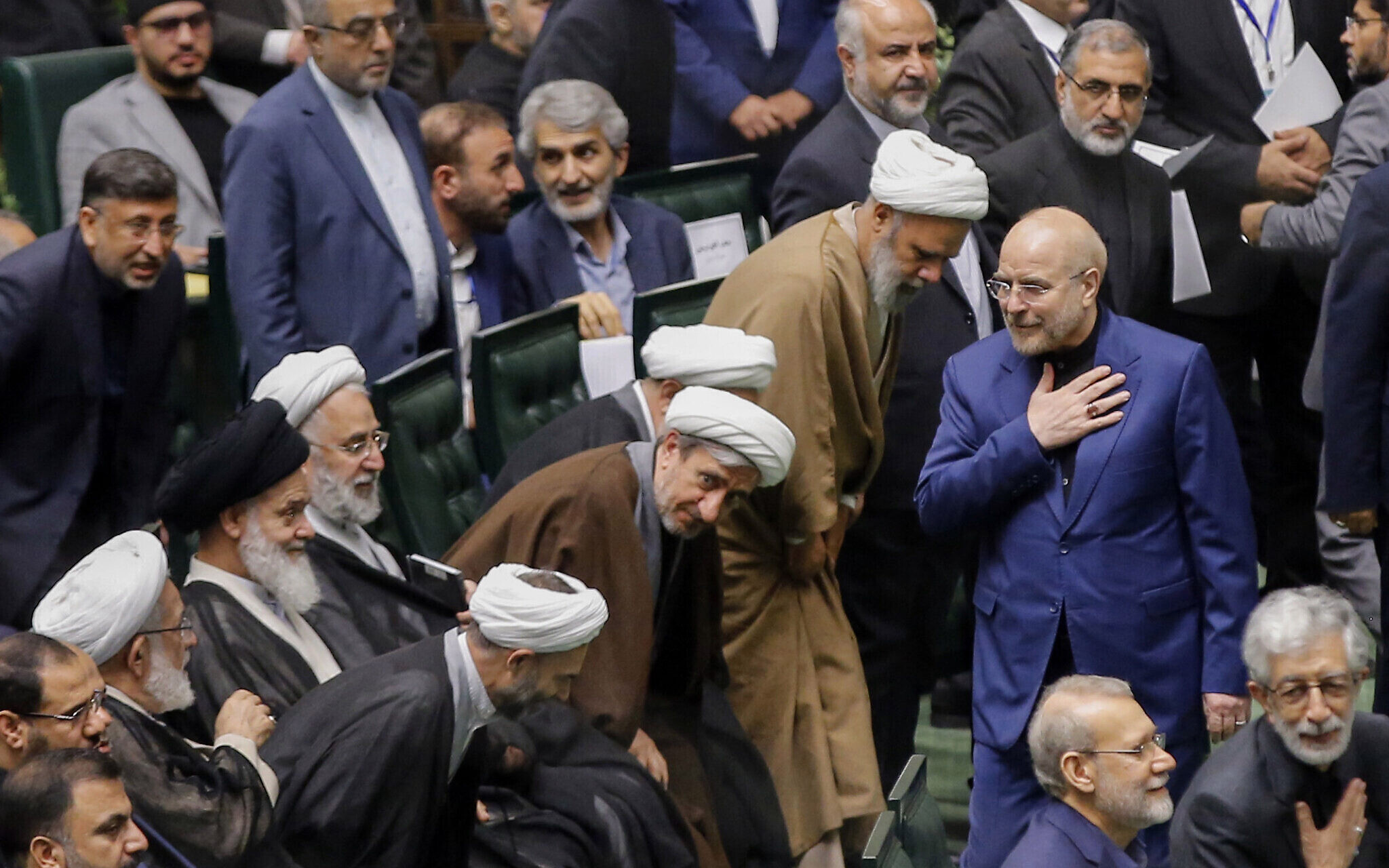
Massoud Pezeshkian
Massoud Pezeshkian is a prominent parliamentarian and the only reformist candidate in the upcoming Iranian presidential elections.
Pezeshkian previously ran in the Iranian presidential elections twice, as he withdrew from the 2013 session after announcing his candidacy and failed to complete his run in the 2021 elections after the Guardian Council rejected his eligibility.
Pezeshkian was born in 1954 in the Kurdish city of Mahabad in West Azerbaijan Province, northwestern Iran.
Pezeshkian graduated in 1985 from the Faculty of Human Medicine at Tabriz University, then headed the university for six years, before moving to Tehran to assume the position of Deputy Minister of Health.
His political career began when he later joined President Mohammad Khatami’s second government in 2001 as Minister of Health.
He is a reformist politician who belongs to Turkish nationalism in Iran and has been a member of the Iranian Parliament since 2006 for the constituency of the cities of Tabriz, Azarshahr, and Asko in East Azerbaijan Province.
In 2016, he also assumed the position of First Deputy Speaker of the Conservative Parliament Ali Larijani, and continued in this position until 2020, before the 11th legislative elections were held in the country.
In the parliamentary elections held last March, he was elected again.
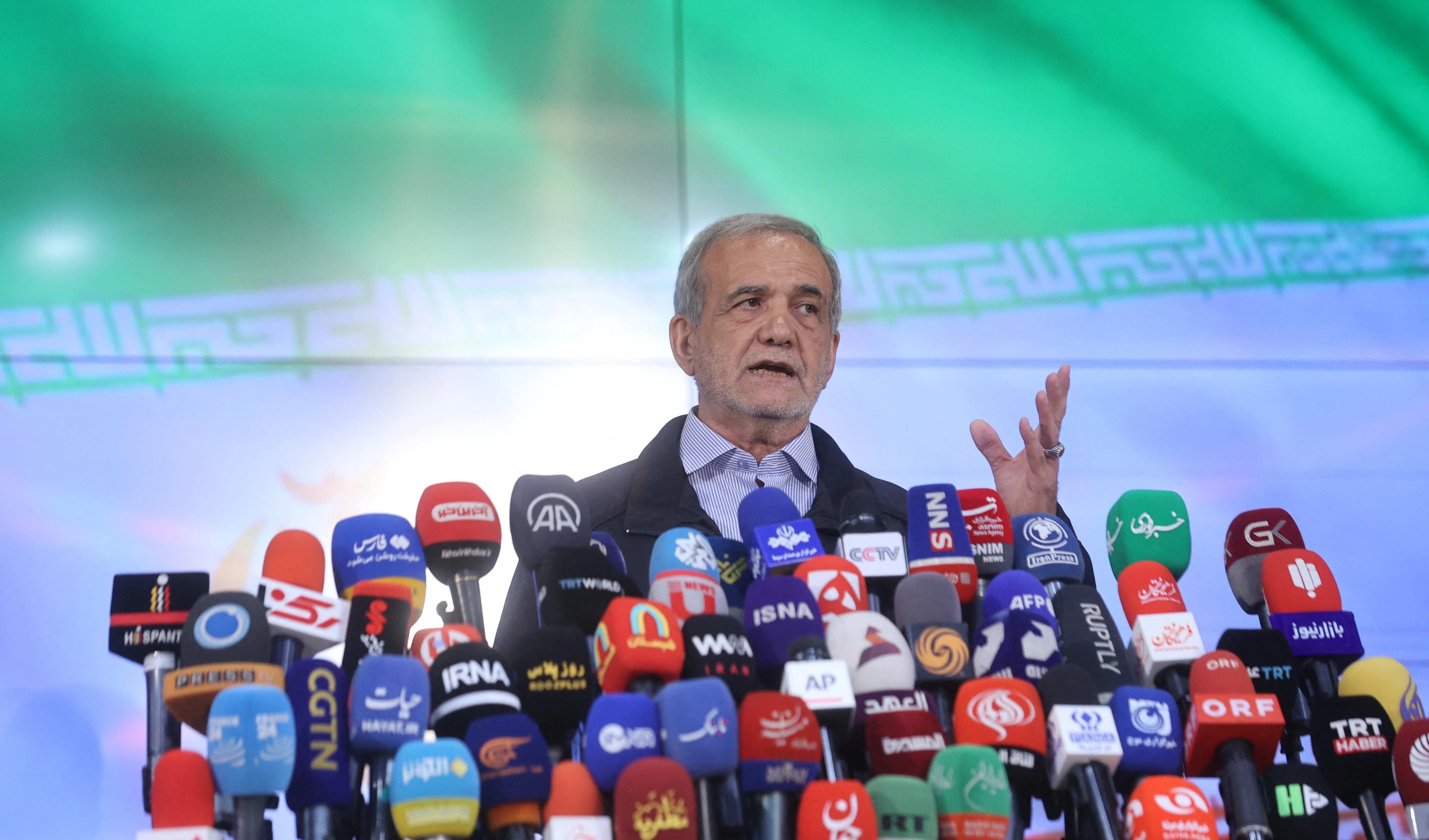
Saeed Jalili
Saeed Jalili was born in 1965 in the city of Mashhad, northeastern Iran. He holds a doctorate in the field of Islamic knowledge and political science from Imam Sadiq University in Tehran.
During the government of former President Mohammad Khatami in 1997, Jalili became deputy head of America's First District.
Later in 2001, he moved to the office of Iranian Supreme Leader Ali Khamenei and took over the management of the ongoing investigations into the leadership institution.
In the government of former Iranian President Mahmoud Ahmadinejad, Jalili returned to the Iranian Foreign Ministry.
In 2005, he became Deputy Minister for European and American Affairs in the Foreign Ministry.
Then, after Ali Larijani’s resignation, Ahmadinejad appointed him in 2007 as Secretary of the Iranian Supreme National Security Council, and he remained in the position for five years.
In 2013, Khamenei appointed him a member of the Expediency Discernment Council.
In the same year, Jalili ran for the presidential elections and won third place. He also ran in 2021, before withdrawing in favor of Raisi.
